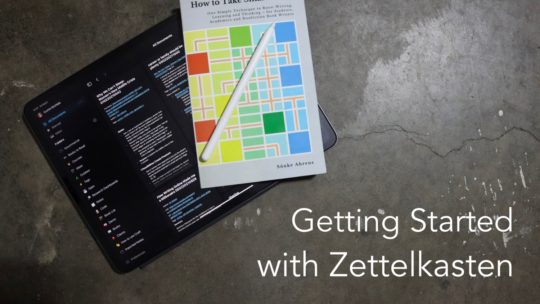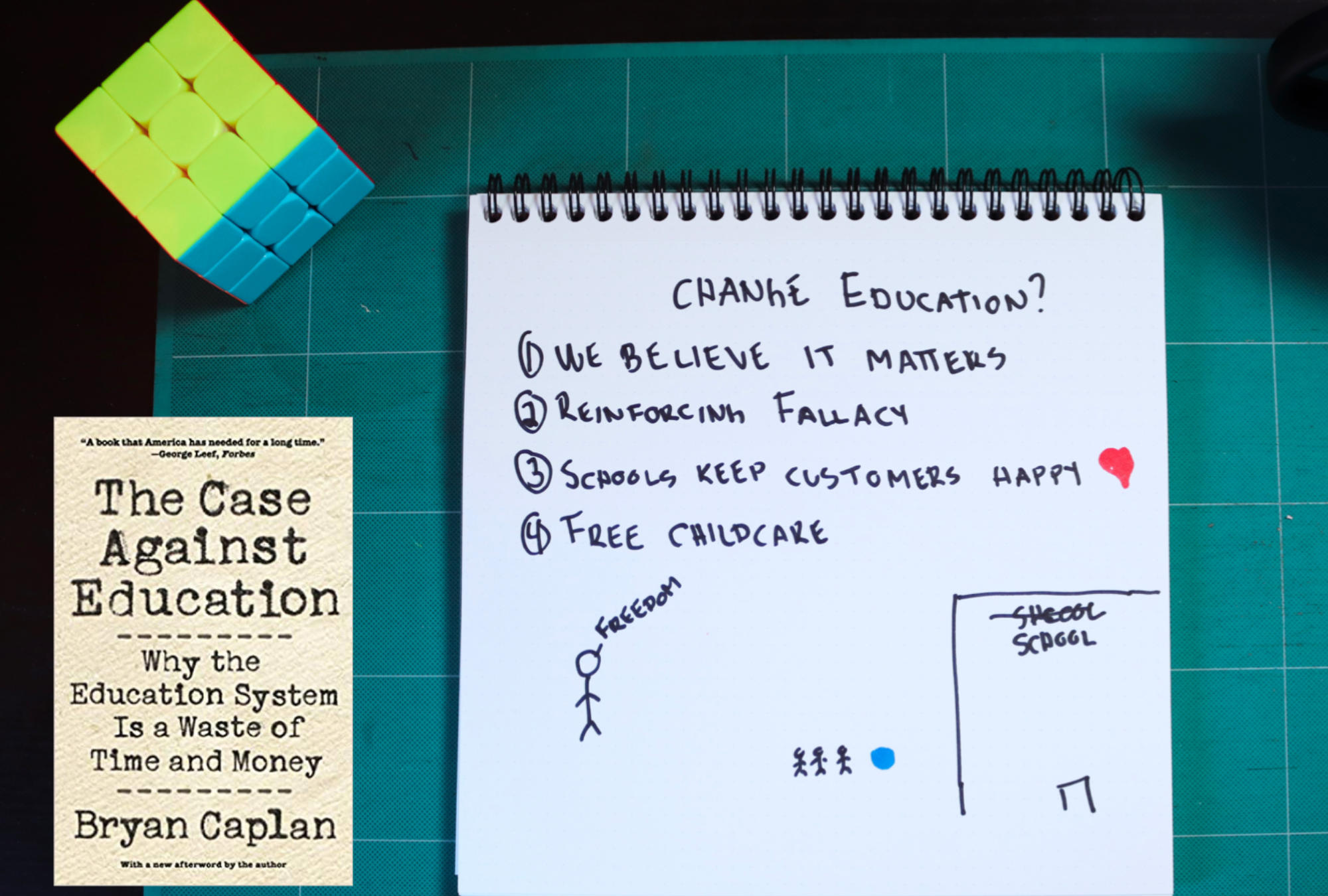Did you love going to school? I know I didn’t. My biggest problem was that I couldn’t see the point of most of the work I did and thus didn’t feel like wasting my effort on it. I easily grasped math that I could turn around and use in my construction job, but then struggled with everything else in the class. No matter how many times my teacher showed me that a variation to the problem worked the same way as the math I could apply, I didn’t care and didn’t bother.
Now decades after I graduated high school Bryan Caplan I get to read that I’m not alone in my distaste for education in high school in his book The Case Against Education. Caplan argues that the primary purpose of education, past the basics in grade school, is all about showing we conform to the norms of society and has almost nothing to do with the content of our learning1.
Caplan’s book hinges on signaling theory. This is the idea that some action credibly conveys information to another party about the person doing the action. He contends that education shows employers we’ll work hard, focus on our work, conform to cultural norms, and do what we are told.
You Don’t Use Most of What You Learn or How to Think
For most students learning isn’t useful because you never use your knowledge in the world of work, unless you teach the subject2. Despite being a programmer, I rarely need anything but basic math I learned in grade school, and every other time I need to use more complex math the answer is on the internet.
The same argument holds for many classes in high school. I don’t use Shakespeare, and can’t remember anything but the plot to Romeo and Juliet despite studying all of his works. I didn’t learn to read a book well, until I took it upon myself over a decade after school to learn how to read a book. I took economics, and remember the basics of a supply and demand curve but that’s it. I have a basic understanding of accounting after 4 years taking it. I know I took marketing, but couldn’t tell you a single practical thing I learned that is applicable today.
When people concede that school may not teach useful content, they often follow up with the idea that students are taught “how” to think. Caplan knocks down this argument with many studies that show you are trained in a narrow window to apply learning3. As soon as you get outside the familiar problem you’ve studied, you don’t transfer knowledge to that other problem. You didn’t improve your thinking, you trained to think about a specific set of problems in a specific way.
If you knowledge in the specific scenarios you trained on in school doesn’t help in the future, how do you get good at a job?
If school teaches few job skills, transfer of learning is mostly wishful thinking, and the effect of education on intelligence is largely hollow, how on earth do human beings get good at their job? The same way you get into Carnegie hall: practice4.
That means that earlier on the job training would lead to earlier expertise in a job5. Unfortunately, as we’ll look at next, it would take a while for employers to realize you expertise without a piece of paper and pay you well because they’re lazy and let that piece of educational paper signal your market value.
Employers Use Education as a Lazy Job Fitness Metric
There is no doubt that there is a wage benefit to education. Those that finish College make more than those that finish high school. Once you count lost years of earning, and the cost of college, much of that gap closes though.
Possibly worse for employers is that using an educational certificate as an indication of your fit for work is terrible. Your education bears almost no measurable influence on your performance on the job6, outside of fields like medicine. Malcom Gladwell showed a similar effect of the LSAT on legal success. All the LSAT shows is how you take a test like the LSAT. It bears no relation to how good a lawyer you are, and in fact bars the slower thinkers that want to wade deep into problems from the elite schools because they can’t take the test fast enough. Gladwell showed that these more contemplative types are ideal for judges, if they ever get the chance.
Let’s let Caplan sum up this section:
The labor market doesn’t pay you for the useless subjects you master; it pays you for the preexisting traits you reveal by mastering them7.
Education Let’s Parents Show They’re Good Parents
Another interesting thing shown in this book was that a “good” education is in part about parents showing they care about their kids. They send their kids to head start preschool and look down on those that don’t. The unfortunate truth is that the money is wasted since the “head start” evaporates by grade 18.
All that happens is that people run a longer race to show better credentials. This credential inflation favours the rich who can run further because money is not as big a concern9. We saw a similar argument made in Kids These Days. Millennials are the most educated generation, and are considered unqualified for jobs that used to take a high school education. It is true that you may need a college degree to signal that you conform enough to serve coffee.
Why Don’t We Change Education Then?
Now, why don’t we change education then? First, the most important thing about education is that society believes it’s special10. As long as education is viewed as special, some people will use their resources to run the race further than others so that they can reap the rewards.
Second, it’s a reinforcing fallacy that education is valuable11. Employers believe see some link between education and good workers. People notice that employers reward education so the motivated people run the education race. Repeat, but the education race is now longer because you have to run further to show how good you can work.
Third, school keeps customers happy12. In The Death of Expertise we saw the same argument. Students are the customers, and customers are always right. Thus GPA’s are getting higher as less homework is required and the work turned in is below what would have been a passing grade in generations past.

Getting Started with Zettelkasten
If you’ve been wondering about what Zettelkasten is and how to start organizing your notes with this excellent system then this course is for you. I’ll walk you through how I use this system to develop my reading research for posts like this one here. You can also become a member to get all my courses.
$99 USD (30-day guarantee)
Finally, school is free childcare so adults are unmotivated to make a hard decision which would jeopardize this childcare13. We’ve spent months of 2020 with kids home that would have been in school, and few parents are happy about this arrangement. Daniel Pink looked at the same phenomenon in When. The best time for kids to start school is later in the day, but that wouldn’t mesh with work start times. Thus, we stick with what is best for adults, not what would help students perform.
Should You Read The Case Against Education?
I do think you should read this book, but there isn’t much you can do about it unless you’re going to take the Unschooling approach. This would have you not worry about education so much and let kids investigate the things that interested them. Even in grade school, more play, more art, an open library for most of the day. Do the basics of reading and math, then let kids learn what they want.
If this seems far fetched, think about your peers. How many of them sit down with a book in the evening to read something to improve themselves? If you’re reading this, I assume you’re more likely to do it, but most people don’t. They don’t spend their free time learning about things, they relax with TV and entertainment.
Often these are the exact activities that we don’t allow kids, yet we show them that they are the activities which are desirable for free time.m
According to Caplan, most people aren’t suited to education past early high school. They should be out working instead and they’ll see a big income increase over their life. If less people get degrees, job requirements will stop including them.
Purchase The Case Against Education: Independent Bookstore | Amazon
